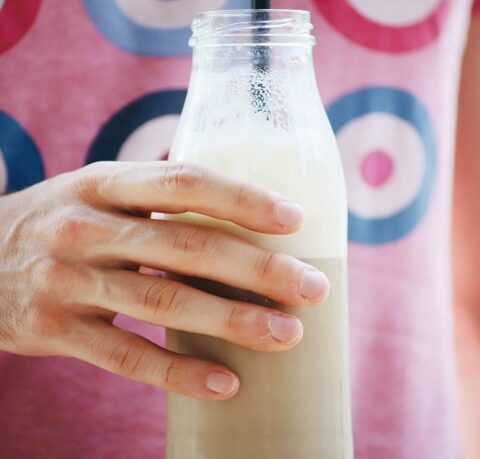Over the last few years there have been huge discussions about the potential of cultured meat – ie meat grown in labs. We have seen huge investment in the sector, both in the companies that will deliver the products and the tech behind them.
There has also been cash spent on taking cultured food into new areas such BlueNalu and its cultured fish.
And yes you can now buy cultured meat products, but only if you live in Singapore.
The reason for the excitement in cultured meat is obvious, it could replace the existing meat industry and thereby significantly reduce global carbon emissions. It could also mean that food can be created in labs anywhere in the globe addressing some poverty issues, and finally, it is in theory good not just for humans but for pets too.
Strangely through, while cultured meat has hugged the spotlight very little has been talked about cultured milk.
Yet there are some interesting innovations in this sector. Earlier in April Israeli food tech BioMilk went public on the Tel Aviv Stock Exchange becoming the world’s first publicly traded cell-based milk company.
As Green Queen reports, the startup produces real cow’s milk from cells, and plans to release its first samples over the next two years.
The company has ambitious plans too and is eyeing a US IPO on the Nasdaq stock exchange as its next step.
It does beg the question though – why cultured milk? The last few years have witnessed a dramatic shift from cow’s milk to alt-milk as illustrated by the popularity of Oatly and its imminent launch on the US stock exchange.
Does the world really need cultured milk, when plant-based milk seems to be chipping away at sales of cow’s milk in such an aggressive way?
Well unlike cultured meat, cultured milk is really only the preserve of a few companies. BioMilk’s main rival is another Israeli-based company Remilk.
The main reason for its production is of course to provide an alternative to cow’s milk, attracting people who prefer the taste of cow’s milk to plant-based milk. Yet it also boasts health and food safety advantages, no antibiotics or hormones need to be added to the milk.
Perhaps it will be possible to create culture milk in labs in environments and geographies where sourcing other types of milk -and whether it be cow’s or plant-based could be difficult.
So many of the advantages of cultured meat also apply to cultured milk.
The process of harvesting the milk is similar to cultured meat too. The company isolates the milk-producing cells within a cow’s udders transfers them a bioreactor, where they are exposed to a cocktail of materials that enables them to produce milk, and not to reproduce themselves. No cow’s are harmed during the process.
The company is certainly bullish about its prospects, especially in its local Israeli market.
“This is a significant milestone towards the achievement of the company’s goals of accelerating the professional introduction of Bio Milk’s technology and making our cultured milk and breast milk products available to the local and the global market,” said BioMilk CEO Tomer Aizen. “The investor confidence that we are able to enjoy on TASE (the Israeli stock exchange) will allow us to enhance our development capabilities and bring forward groundbreaking solutions to the local and the global market.”
That could be a long way off though. Like the cultured meat startups, BioMilk will have to overcome a series of regulatory hurdles before it can go on sale. It would be hard to imagine it being licensed in Europe for example without a huge backlash from dairy farmers.
Interestingly the company is also working to develop an analogue of human breast milk. That’s an issue we will look at in the future. For now though BioMilk is clearly one to watch




